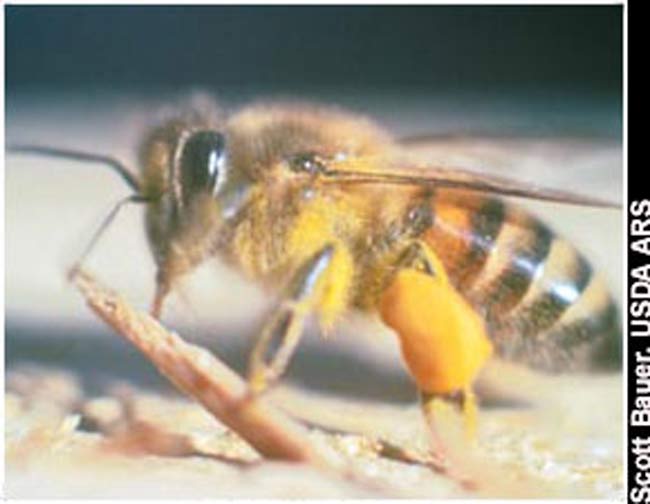Mayan Stingless Beekeeping in Danger

An ancient tradition of beekeeping on Mexico's Yucatan peninsula is on the verge dying out, due to cultural change and loss of habitat.
Long before Europeans introduced honeybees (Apis mellifera) to the Americas, Mayan beekeepers harvested honey from the log nests of stingless bees that inhabit the tropical forests.
"For thousands of years, Mayans were expert practitioners of bee husbandry, and honey was an essential forest resource: as a sweetener, as an antibiotic and as an ingredient in the Mayan version of mead," said bee expert David Roubik.
The type of bees the Mayans used were large-bodied meliponine bees, of which their favorite was "Xunan kab" or "royal lady" (Melipona beecheii) - which is one of 500 or so species of stingless bees in the tropical world
In the Mayan tradition, a priest harvested stingless bee honey as part of a religious ceremony only twice a year - more than that could kill the colony. Most beekeepers these days have replaced native species with the Africanized honeybee, which produces more honey.
On the Yucatan, native bees have been hurt by deforestation, forest fragmentation and hurricanes.
The royal lady was the one bee that the Mayans would routinely propagate by dividing and moving hives.? Although still practiced to this day, most of the beekeepers are old men living in rural areas with no one to pass their traditions on to.
Sign up for the Live Science daily newsletter now
Get the world’s most fascinating discoveries delivered straight to your inbox.
"That technology is all but lost, but we'd like to see it turned around, not only to ensure the survival of meliponiculture as a way of life, but also to build up breeding stock to be re-introduced into the wild where bees play an important role as pollinators," Roubik said.
?
Roubik and colleagues recently published an amply illustrated handbook, in Spanish and Mayan, with step-by-step instructions for basic stingless beekeeping.? An article will also appear in the June, 2005, "Bee World," published by the International Bee Research Association.
Related Stories










